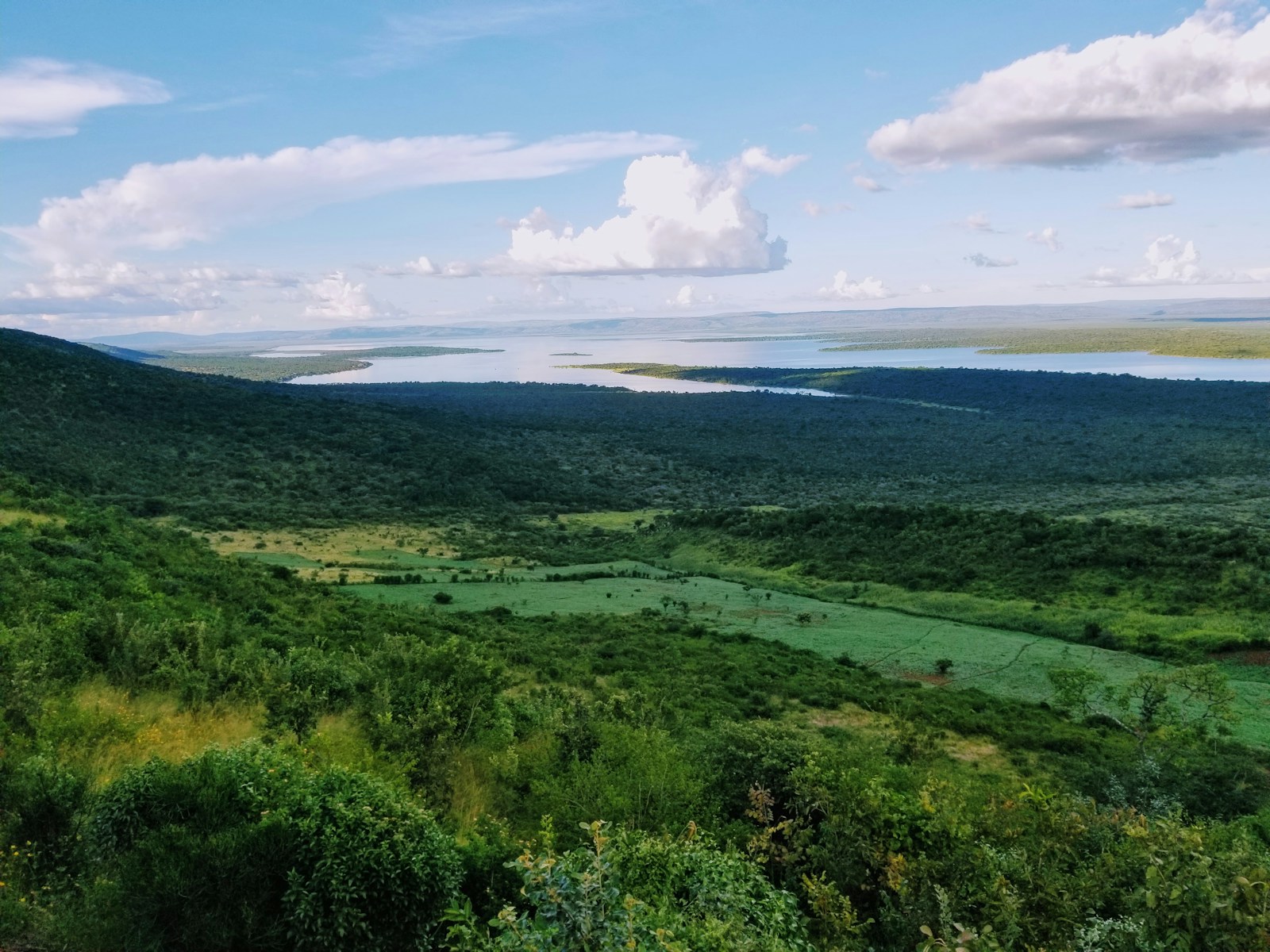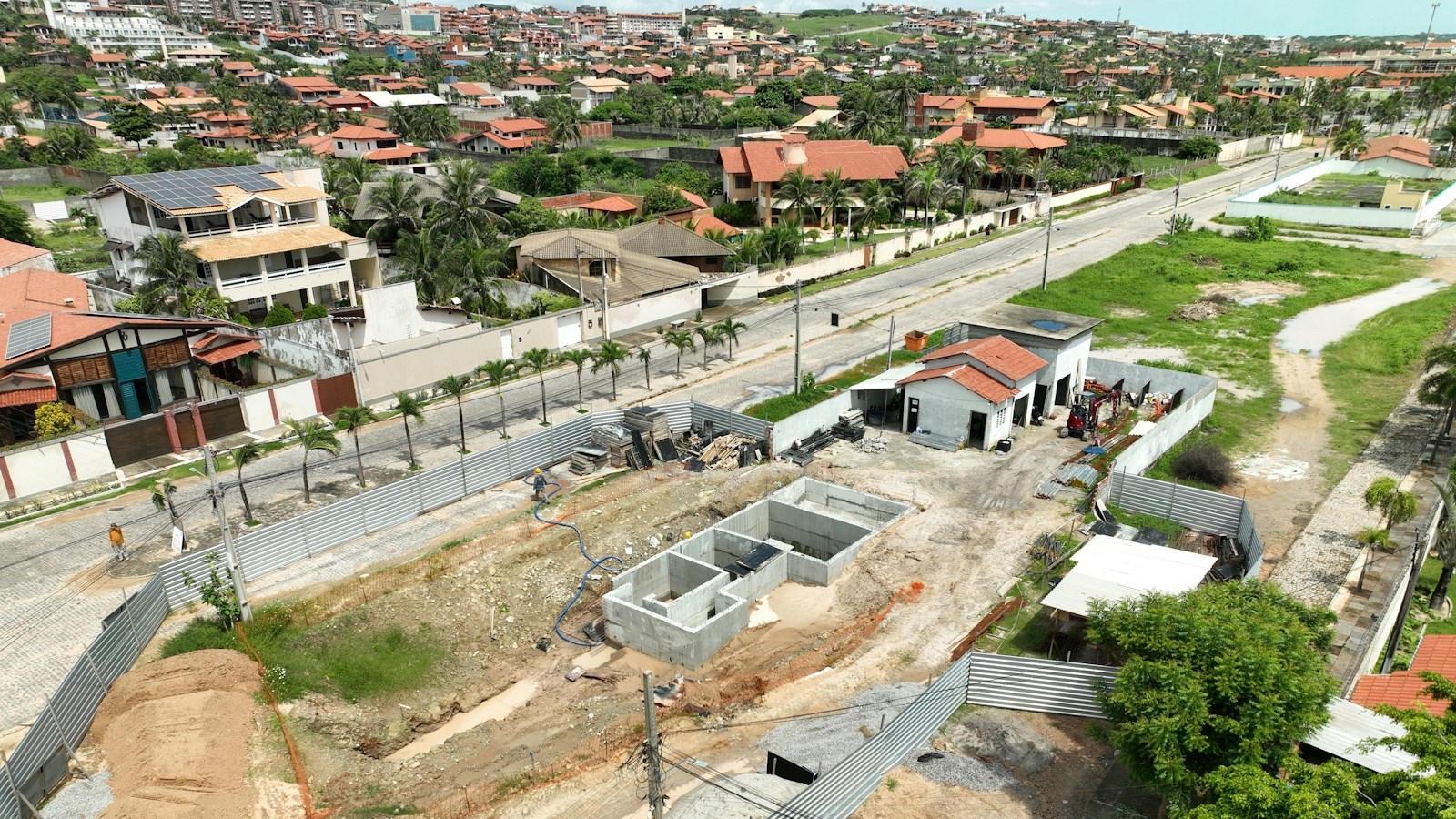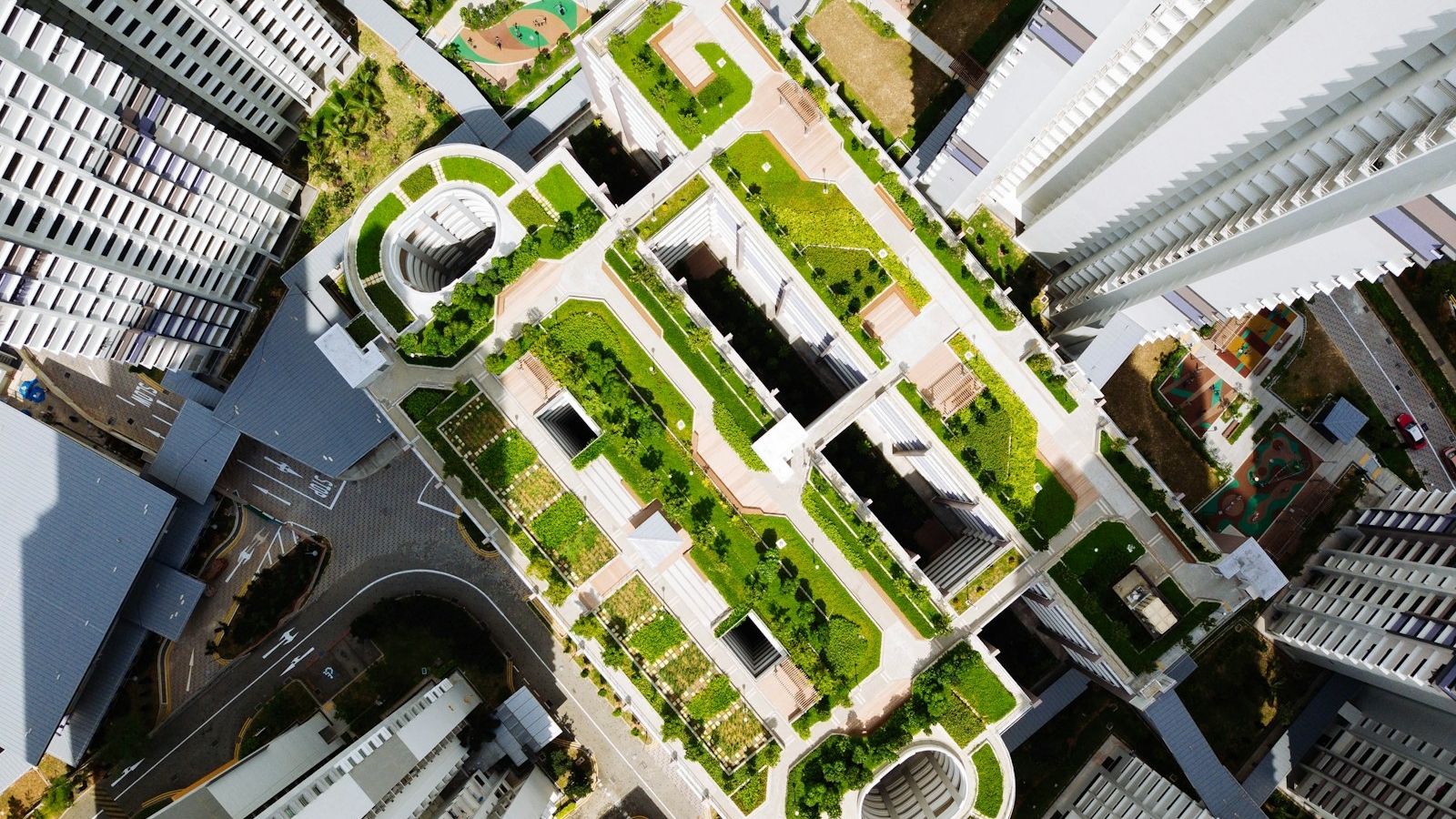- Overview of Land Tenure in Rwanda
- Land Concessions and Special Leases for Strategic Investments
- Foreign Ownership Laws and Restrictions
- Recent Policy Changes and Investment Implications
- Conclusion
Rwanda’s real estate sector is governed by a modern legal framework that defines how land can be owned or used by individuals and investors. Under Rwanda’s Constitution and land laws, land is ultimately owned by the state and private ownership rights are granted by the state. However, in 2021, Rwanda enacted a new land law (Law n° 27/2021 of 10/06/2021) which introduced significant changes to land tenure in Rwanda and foreign ownership rights. This article provides an overview of the types of land tenure in Rwanda – namely freehold and various forms of leasehold – and explains the legal restrictions on foreign ownership.
Overview of Land Tenure in Rwanda
Rwanda’s land tenure system is characterized by state ownership of all land with rights of use and ownership conferred to private parties through freehold titles or long-term leases. The 2021 Land Law reinforced this framework, aiming to clarify land rights and encourage investment. Under this law, both Rwandan citizens and foreign nationals may hold land, but the form of tenure and the conditions differ significantly for locals versus foreigners. The law also created new categories of land tenure to facilitate strategic investments by the private sector. Below is a summary of the main types of land tenure in Rwanda:
- Freehold Title: Full ownership of land for an indefinite period (available mainly to Rwandan nationals, with size limits, as described below). Freehold confers permanent, outright ownership once granted.
- Emphyteutic Lease (Leasehold): A long-term lease contract (often 99 years) between the state and a person or entity, granting the right to use and develop the land in exchange for periodic rent or fees. This is the most common form of landholding in Rwanda for both citizens and foreigners.
- Land Concession: A special lease of state-owned land for strategic investment projects (e.g. large-scale agriculture, forestry, mining), typically granted for up to 49 years, renewable by agreement. This allows use of land in the state’s private domain for specific purposes deemed in the national interest.
- State Long-Term Lease for Infrastructure: A lease of state private land for strategic infrastructure and commercial developments (e.g. industrial facilities, hotels, public utilities) for up to 99 years, subject to conditions. This was introduced to give investors security for major projects, including rights to mortgage the leasehold interest.
Rwanda’s National Land Authority oversees land administration, and all land rights transactions must be registered with the Registrar of Land Titles. The legal framework emphasizes compliance with land use plans and development conditions – landholders (whether freehold or leasehold) are obligated to use the land in accordance with its designated purpose (e.g. respecting zoning/master plans) and to pay any applicable land taxes or lease fees. Failure to comply with these obligations can result in penalties or even loss of rights (for instance, a lease can be terminated if the land is not used as agreed).
Freehold Land Tenure in Rwanda
Freehold is the highest form of land tenure in Rwanda, granting full ownership rights over land for an indefinite duration. Under the current law, freehold title is generally reserved for Rwandan citizens. A Rwandan national can be granted a freehold title for land that has been developed in line with relevant master plans (such as land used for residential, commercial, industrial, or public purposes). Importantly, there is a size limitation on freehold land for individuals: a private individual’s land that is subject to freehold cannot exceed 2 hectares, unless a special ministerial order permits a larger size. This represents a recent change – previously the limit was 5 hectares, but the new 2021 law reduced the standard freehold size to 2 ha per person to promote efficient land use.
To obtain a freehold title, an eligible person (or company) usually must already hold an emphyteutic lease on the land and have fulfilled development conditions. The procedure involves applying to the Registrar of Land Titles with required documents, such as the existing lease contract, proof of land registration, and an occupancy permit for any buildings on the land. If the land is greater than two hectares, a Ministerial Order approving the freehold is required as noted above. Once the application is approved, a freehold title deed is issued and registered, typically within 14 working days.
For Rwandan citizens, freehold provides the strongest security of tenure – the land can be held indefinitely and passed to heirs, with the owner enjoying full rights to use, transfer, or mortgage the property as allowed by law. Freehold landholders are subject to property taxes rather than annual lease fees. However, even freehold owners must comply with land use regulations (e.g., not leaving land fallow contrary to the approved use, etc.), or risk sanctions.
For foreigners, direct access to freehold tenure is extremely restricted. Under the new law, a foreigner may only be granted freehold ownership in “exceptional circumstances of strategic national interest,” with approval by a Presidential Order. In other words, the default position is that foreigners are not entitled to freehold titles in Rwanda. This marks a shift from the previous law (2013) which had allowed some limited paths for foreigners to obtain freehold (such as if the land was in a Special Economic Zone, through bilateral reciprocity agreements, or via joint ownership with a Rwandan majority partner). Those provisions have now been removed.
Today, unless a project is deemed of strategic importance to the nation (and the President specifically authorizes a freehold grant to a foreign entity), foreign investors must operate under leasehold arrangements for their land holdings.
Emphyteutic Lease (Leasehold) in Rwanda
The emphyteutic lease is the cornerstone of land tenure for most landholders in Rwanda. An emphyteutic lease is essentially a long-term lease from the state (as the ultimate owner of land) to an individual or corporate entity, granting the right to use and develop the land for a specified period. This form of leasehold is often referred to simply as “owning land on a leasehold basis”.
Key characteristics of emphyteutic leases in Rwanda include:
- Long Duration: The leases are granted for up to 99 years for both citizens and foreigners under the current law. This is a significant improvement for foreign investors; under the previous regime, foreigners could typically only obtain 20-year leases for residential property and 30 to 49-year leases for commercial or investment property. Leases may also be renewed upon expiry, subject to conditions, meaning the land use can effectively be extended beyond the initial term.
- Secure Rights & Use: During the lease period, the leaseholder has broad rights akin to ownership – he/she can build upon the land, use it for the designated purpose (e.g., farming, housing, business), and generally enjoy exclusive possession. The leaseholder can also sell or transfer their leasehold interest to another party (with regulatory approval via the land registry) and can mortgage the leasehold to obtain financing. For example, banks in Rwanda will accept a properly registered emphyteutic lease title as collateral for loans, because it is a recognized property right. The new law explicitly allows even leases on state land for investments to be mortgaged, which boosts investor confidence.
- Obligations: Leaseholders must pay annual land lease fees (rent) as determined by law or contract. A Presidential Order sets the lease fees depending on land location and use category, ensuring that leasehold land contributes to public revenue. Additionally, lessees are obligated to use the land according to its intended purpose and development conditions. Non-compliance (such as abandoning the land, or using it for unauthorized purposes) can lead to warnings, penalties, or eventually the government revoking the lease.
- Conversion to Freehold: For Rwandan nationals, an emphyteutic lease on eligible land can later be converted into a freehold title once certain conditions are met. As noted earlier, the land must be within a category that permits freehold (typically urban or developed land) and the lessee must apply and obtain approval, including meeting the size limit (≤2 hectares for individuals, unless waived). Upon conversion, the leaseholder becomes an outright owner (freeholder) and the leasehold terminates.
From a practical standpoint, for local buyers, most residential plots or commercial properties will be transferred as an emphyteutic lease right. The buyer will receive a Certificate of Land Registration showing them as the registered leasehold owner of the parcel, with details of the lease term (often 99 years) and any conditions attached. This certificate is the legal title document. For foreign investors, the emphyteutic lease is essentially the only avenue to hold land (outside of rare Presidential approvals for freehold). The 99-year lease is renewable, provides a level of tenure security that in practice is comparable to ownership for the investor’s needs. Moreover, the lease can be sold or sub-leased if needed, allowing flexibility.
For personal residential property, Rwandan citizens likewise often hold their homes on leasehold land (unless they convert to freehold after developing it). In Kigali and other cities, 99-year leases are common for houses and apartment land. The government’s policy is that long-term leases combined with strict land use planning will ensure land is used productively and can be reallocated in the distant future if needed for the public interest, rather than being tied up indefinitely underutilized.
In summary, the emphyteutic lease is a robust and investor-friendly system: it gives substantial rights and security to the landholder, while allowing the state to maintain oversight on land use and retain the reversionary interest in the very long term. Local and foreign investors should understand that “buying” land in Rwanda usually means buying the remaining years of a long-term lease – and this is normal and does not diminish the value or security significantly, given the strong legal protections in place.

Land Concessions and Special Leases for Strategic Investments
The 2021 land law introduced new forms of land tenure in Rwanda specifically designed to facilitate strategic investment projects, particularly where the land involved is owned by the state. These are essentially specialized types of leaseholds with tailored terms:
- Land Concession: This is a contract by which the government grants an investor the right to use a defined parcel of state-owned private land for a specific investment purpose, for a limited duration. Concessions are intended for sectors like large-scale agriculture, livestock farming, forestry plantations, mining, research, or other projects deemed of strategic importance. The law stipulates that a land concession cannot exceed 49 years in duration. However, a concession may be renewed upon evaluation – typically, the government will assess how the land was used and whether the project met its development targets before granting an extension.
Under a concession, the investor gains the right to occupy and use the land for the agreed purpose, and importantly the investor may have rights to mortgage or pledge the concession rights (for the term of the concession) to raise capital. This means even though the land itself isn’t owned by the investor, the contract rights – being valuable – can serve as security for financing, which is crucial for capital-intensive projects like commercial farming or mining. Concessionaires must adhere strictly to the terms of the concession agreement and land use plan; failure to develop the project or misuse of the land could lead to the concession being revoked. Essentially, a land concession is a partnership with the government: the state provides access to land it owns, and the investor commits to implement a project that benefits national development. - State Long-Term Lease (Lease for Infrastructure/Strategic Projects): In addition to concessions, the law provides for leases of up to 99 years on state-owned land for strategic infrastructure and urban development projects. This arrangement is slightly different from concessions in that it is meant for projects like building industrial parks, commercial centers, hotels, transport hubs, schools, hospitals, or other major infrastructure. The term can be as long as 99 years, mirroring the emphyteutic lease duration, but since the land is public, the agreement will include specific covenants. For instance, an investor who takes a 99-year lease on state land to develop a hotel must construct and operate that hotel. Any change in the use or transfer of the project likely requires government consent. The law enables such leaseholders to mortgage both the land lease and the developments on the land to secure financing, which is vital for enabling investment in large projects. These long leases are effectively the government’s way of inviting private investment into sectors like tourism and industry, while keeping ultimate ownership of critical land in public hands for future generations.
Both the concession and the 99-year state lease are part of Rwanda’s investor-friendly initiatives under its recent legal reforms. They recognize that some investors may need larger land areas or special terms that go beyond ordinary private land transactions.
From the investor’s perspective, while these are not freehold purchases, they offer strong security and clarity. The agreements will outline rights and obligations in detail. If the investors comply, they have the guaranteed right to use the land for the duration. Rwanda’s government tends to hold investors accountable but also provides support and predictability – the investment law and Rwanda Development Board’s (RDB) processes often integrate with these land agreements to give investors’ confidence.
In summary, land concessions and state leases broaden the menu of land tenure options in Rwanda to accommodate big projects. They do not confer ownership, but they strike a balance between investor interests and public interest. For most local buyers (e.g. someone buying a house or a small farm) these will not be directly relevant. However, for foreign investors or even large Rwandan companies, being aware of these mechanisms is important – the viability of an agriculture venture or a large real estate development might hinge on negotiating the right type of land tenure agreement with the government.
Foreign Ownership Laws and Restrictions
Rwanda’s investment climate is welcoming foreign investments and foreigners are allowed to own real estate on a leasehold basis in Rwanda. There are no blanket prohibitions on foreign landholding, but the law imposes certain restrictions and procedural requirements that foreign buyers must heed. These measures are designed to ensure that foreign land acquisitions align with Rwanda’s development goals and do not negatively impact local interests. Below are the key points regarding foreign ownership of land in Rwanda:
- No Freehold for Foreigners (Except Special Cases): As discussed, foreign individuals or foreign-controlled companies cannot obtain freehold of land in Rwanda except by rare Presidential approval for strategic projects. This is a general limitation introduced in the 2021 law. Practically, a foreign investors should assume that any land they acquire will be on a leasehold basis (emphyteutic lease or concession). The intent is to keep perpetual ownership of land in Rwandan hands, while still allowing foreigners long-term usage rights. This is similar to policies in some other countries in East Afrika, like Kenya or Uganda, that restrict foreign freehold ownership. Notably, Rwanda’s law treats even jointly owned land as foreign if any co-owner is a foreign national. So, for example, if a foreigner and a Rwandan jointly purchase a plot, that land is considered foreign-held, and the freehold restriction would apply unless the foreigner’s interest is removed or special approval obtained.
- Residential Property Restrictions: A foreigner is limited to owning one residential plot for personal use, and that plot must not exceed a certain size as determined by law. The law, through ministerial instructions, stipulates that a foreign individual may purchase a single plot of land designated for a single-family residence, not larger than the standard size of a residential plot in that area. In Kigali, for instance, typical residential plot sizes can be around 300 square meters in planned estates, and indeed officials have cited 300 m² as the maximum size for a foreigner’s private residential land. Exceeding the one-plot limit or size triggers the requirement to go through an investment route (see next point).
- Requirement for Investment Plan for Multiple or Large Properties: If foreign investors desire to own land beyond the basic personal house allowance – for example, to buy several plots, an apartment building, or a larger piece of land for development – they must register a company in Rwanda and submit a business plan that justifies the investment. In other words, the foreigner needs to become an investor in the eyes of the law rather than just a private individual. Practically, this involves incorporating a local company (which can be 100% foreign-owned) and obtaining an Investment Certificate from the Rwanda Development Board (RDB). The investment certificate process requires a business plan and usually a minimum capital or project size. Once this is done, the company can acquire land for the approved investment purposes. For instance, a foreigner who wants to buy several hectares to build rental villas or to engage in commercial agriculture would form a company, get an investment certificate for a real estate development or farm project, and then purchase or lease the land under the company’s name. This ensures the land is being used for a productive project that contributes to the economy, which aligns with why Rwanda imposes the restriction – to discourage speculative holding of land by foreigners and encourage active investment.
- Equality in Transaction Process: Apart from the above special rules, the process of buying property in Rwanda as a foreigner is largely the same as for a citizen. Foreign buyers must conduct due diligence on the land and then enter a sale agreement with the seller. Sales of land must be done in writing and notarized by a public notary. Both parties (buyer and seller) usually appear at the local Administrator Sector office to sign the transfer documents before the notary, and the transfer is then recorded in the national Land Register. The buyer will be issued a new land certificate (in the case of a lease, a new leasehold title in their name). Foreigners must present valid identification (passport or foreign ID) for the transaction. Hence, foreign investors should not be deterred by the process – it is transparent and follows a standardized procedure. The main difference might be that a foreign buyer without residency in Rwanda would likely need to obtain a non-resident taxpayer ID for paying any applicable taxes (like property transfer fees) and might appoint a representative or attorney for convenience, but these are minor procedural points.
- Land Use Conditions and Master Plan Compliance: Foreign owners, just like locals, must adhere to land use plans. One additional layer for foreigners is that if their land was acquired under an investment certificate or as a concession, they are contractually obligated to follow the approved business plan. For example, if a foreign-owned company obtained land to build a factory and instead the company attempted to turn it into luxury housing without permission, that would violate both zoning laws and the terms of their agreement. Rwanda’s strict regulatory approach means such actions could lead to revocation of rights. Therefore, foreign investors should always ensure they stay in compliance with both the master plan (the official land use zoning plan) and any specific conditions tied to their land holding. Permits for construction must align with the land use and any permit issued contrary to the land use plan is considered invalid. This underscores Rwanda’s commitment to planned development – something investors should actually find reassuring, as it reduces arbitrary changes and maintains property values.
In essence, Rwanda allows foreign investors to participate in the real estate market, but on the condition that their land ownership serves a genuine purpose (residence or investment). The one-home rule prevents foreign speculation in multiple residential properties, which helps avoid driving up home prices for locals. The requirement to use a company and investment plan for larger holdings ensures foreign-held land contributes to economic activity (through businesses, agriculture, etc.) and not just held idle. These policies reflect Rwanda’s broader philosophy of land as a precious resource – it must be used productively and in line with national interests.
For a foreign investor or a member of the Rwandan diaspora holding foreign citizenship, the practical steps to acquire land would be:
- Decide the purpose of acquisition: If it’s for a personal home, ensure it’s just one plot within size limits. If it’s for a business or larger project, prepare to set up a company and get an RDB investment certificate.
- Find the property and negotiate the purchase price or lease terms. (Foreigners can buy from private owners or lease from government if it’s government land; many choose to work with local real estate agents or lawyers.)
- Conduct due diligence: Check the land title for the seller’s name, confirm there are no encumbrances (no mortgage or court caveat on the land) – this can be done via a search at the Rwanda Land Authority and RDB. Verify zoning and permitted use (especially important for investment projects).
- Sign a sale/purchase agreement: This contract, often prepared by a lawyer, outlines the terms of sale. It should be in writing and is usually conditional on successful transfer. It must be signed by both parties; if either is not physically present, a power of attorney can be used.
- Notarization and Transfer: Appear before the Sector notary to sign the official transfer documents (or “Form 1” application for transfer). Pay the required transfer fees (usually a small percentage of property value or a fixed fee, and if applicable, 5% capital gains tax which is often by the seller). The notary will verify identities (passport for foreigner, ID for Rwandan), ensure both seller and buyer consent, and then endorse the transfer.
- Registration: The transfer documents are forwarded to the Registrar of Land Titles. Within a short period (often a few days to a couple of weeks), the new land certificate is issued in the buyer’s (or buyer’s company’s) name. The foreign owner now has legal title (as leasehold) to the land.
- Post-purchase compliance: The new owner should comply with any ongoing requirements – e.g., start construction by a certain date if required (some areas have timelines to build house so plots don’t remain undeveloped), pay annual lease fees and property taxes in January each year, and generally use the land as intended.
It is advisable for foreign investors to engage a qualified local attorney or consultant during this process, to navigate any bureaucratic steps and ensure full compliance. That said, Rwanda has consistently been ranked highly for ease of doing business, and property registration is relatively straightforward compared to many countries in the region. The introduction of online systems like electronic land registration and e-titling has further streamlined the process in recent years.
Finally, foreign investors often wonder: is a leasehold safe enough? The answer in Rwanda’s context is yes – the law protects leaseholders strongly. Should a lease reach its expiry after, say, 99 years, the expectation (as guided by law and practice) is that the lease would be renewed for the occupant, provided the land is still being used appropriately and there’s no overriding public need for it. The government cannot simply take leased land without due cause and compensation, because the leasehold interest is a property right. In any event, 99 years is a very long horizon – it offers stability for any investment one would make today.

Recent Policy Changes and Investment Implications
The landscape of land tenure in Rwanda and foreign ownership is the result of reforms that culminated in the 2021 land law and subsequent regulations. Some key changes and their implications include:
- Extended Lease Terms for Foreigners: The new law eliminated the shorter lease terms that applied to foreigners in the past. Now foreign investors can obtain leases up to 99 years for both residential and commercial purposes. Implication: This change greatly improves the attractiveness of Rwandan real estate to foreigners, as it provides long-term security comparable to full ownership. Investors no longer need to worry about a 20-year home lease running out or a 49-year cap on a factory lease – they have parity with citizens in lease duration, reducing the need for frequent renewals and the uncertainty that came with shorter leases. It also simplifies financing, as banks view a 99-year lease almost as favourably as freehold for collateral purposes.
- Freehold Restrictions Tightened: Conversely, access to freehold was tightened for both foreigners and nationals. Foreigners lost the previously available (though limited) pathways to freehold (SEZ, reciprocity, joint ventures) – now it’s by Presidential approval only. Rwandan individuals saw the maximum size of personal freehold land reduced from 5 ha to 2 ha. Implication: These measures underscore the government’s strategy of preventing excessive land monopolization and speculative ownership. For investors, it means investments must be structured under the assumption of a leasehold. For large-scale projects that might require a freehold for assets (e.g. an agricultural estate), it means working more closely with government to obtain the required approvals. However, the practical impact is minor for most, since a long lease is functionally sufficient and the state has shown willingness to renew leases for ongoing projects. For locals, the 2 ha rule encourages consolidation of small plots rather than holding large areas of undeveloped land, pushing larger landholders to justify their needs or relinquish excess land for others to use.
- Introduction of Investment-Specific Tenures: The creation of land concessions and state leases for strategic investments is a significant development. Implication: The government is actively courting investors in sectors like agriculture, tourism, and infrastructure by offering tailored land agreements. Investors who might have been concerned about acquiring very large areas or critical locations can be accommodated through these mechanisms. It indicates a flexible, case-by-case approach. This targeted flexibility can be seen as investor-friendly, because it means if the investor has a serious investment plan, the government is willing to find legal pathways to access the required land. It also provides reassurance that such deals are structured with oversight, potentially reducing community conflicts since the transactions are directly with the state in many cases (for state land).
- Residential Housing Guidelines for Foreigners: The 2021 ministerial instructions clarified what a foreigner can do in the residential market (one house on a standard plot). Implication: This calms any fears of foreigners buying up local housing. It protects local first-time homebuyers from competing with speculative foreign buyers in the ordinary housing market, which is socially and politically beneficial. For foreign retirees or expatriates simply looking to live in Rwanda, it provides a clear allowance but also a clear limit regarding property ownership.
- Centralization and Digitization: Though not directly an ownership restriction, a related policy change is that all land (including government-owned land) is now centrally registered to the Government of Rwanda via the Ministry of Environment. Additionally, electronic land registration and titling have been implemented. Implication: These steps increase transparency and reduce bureaucratic hurdles in land transactions. For an investor, it is easier now to verify land status and complete transactions quickly. The risk of fraud or competing claims is minimized by a single, authoritative digital registry. This complements the tenure reforms by improving land tenure security.
- Alignment with Investment Promotion: Rwanda’s Investment Code promises equal treatment of foreign and local investors in the set boundaries. However, some foreign investors initially voiced concern that the stricter foreign freehold limit might conflict with investment promotion principles. The government has maintained that these land measures are not meant to discourage investment but to ensure land is available and used in Rwanda’s best interest. In practice, the number of foreign investment projects has continued to grow, indicating that the leasehold model is broadly acceptable to investors. Many countries operate similarly with long-term leases for foreigners (including regional peers like Kenya or Uganda), so Rwanda remains competitive.
In conclusion, the current legal regime in Rwanda strikes a balance between controlling land ownership and encouraging investment. Local buyers benefit from clear recognition of their rights and protection from unchecked foreign speculation, while foreign investors benefit from long-term security and a stable, rules-based system to acquire and use land. The emphasis on having an investment plan and complying with land use plans means that investors should approach opportunities in Rwanda with seriousness and diligence – speculative or land-banking approaches are not favoured. For genuine investors, though, Rwanda offers a straightforward path to acquire land and develop projects, with strong legal safeguards on their tenure.
Conclusion
Rwanda’s land tenure system, as updated by the 2021 reforms, provides a clear and investor-friendly legal environment with well-defined types of land tenure and foreign ownership restrictions. Rwandan citizens can hold land either under long-term leases or, for certain developed lands, under full ownership (freehold) subject to size limits. Foreigners, while not generally permitted freehold, can confidently invest through 99-year leaseholds, concessions, or other contracts that grant them secure and mortgageable rights to land. The limitations placed on foreign ownership – such as the one residential plot rule and the requirement to route larger acquisitions through investment projects reflect Rwanda’s prudent management of land as a strategic resource. These policies ensure that land remains available for national needs and that foreign investment translates into tangible benefits (homes, businesses, jobs) for the country.
For local buyers, understanding these tenure types is crucial for making informed real estate decisions. If a local buyer is are purchasing a home, he/she will likely receive a 99-year lease title, which can later be converted to a freehold title if eligible.
For foreign investors, Rwanda offers stability and openness: land can be owned via 99-year leasehold with essentially the same user rights as freehold land. For freehold land the necessity of an investment certificate for significant land means the government is effectively a partner in the investor’s success. Many foreign individuals have already made Rwanda their home or investment destination, as evidenced by the tens of thousands of foreign-held land titles on record. With zero tolerance for corruption, streamlined business registration, and now a clarified land law, Rwanda has positioned itself as an attractive location for real estate and land-based investment in Africa.






Join The Discussion